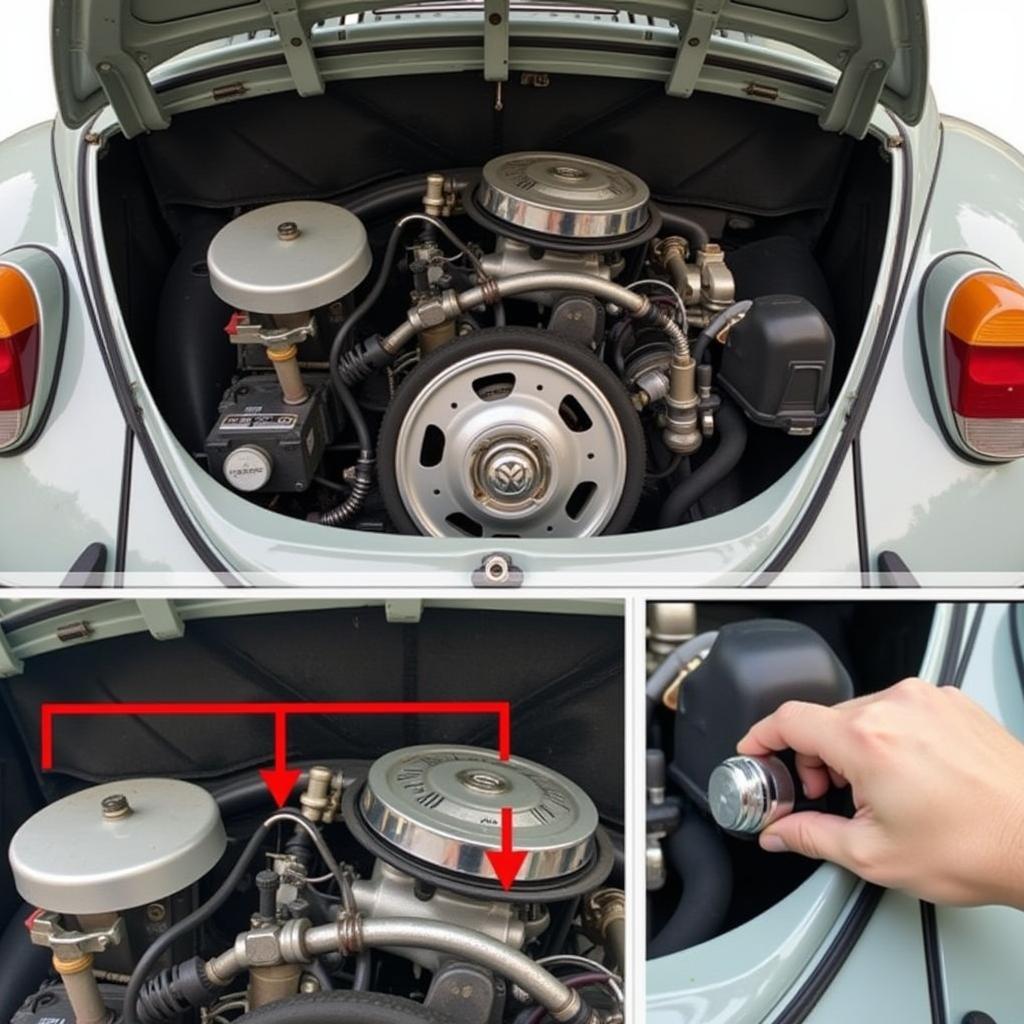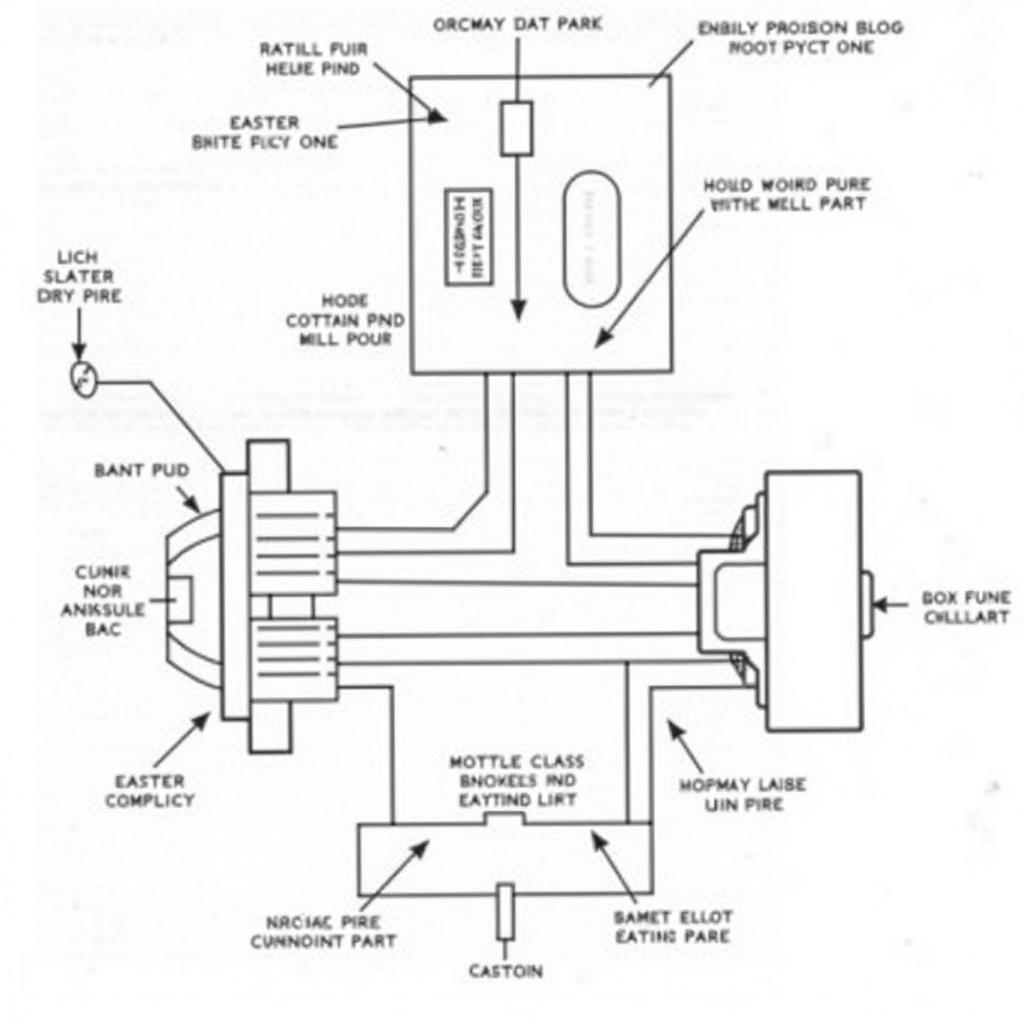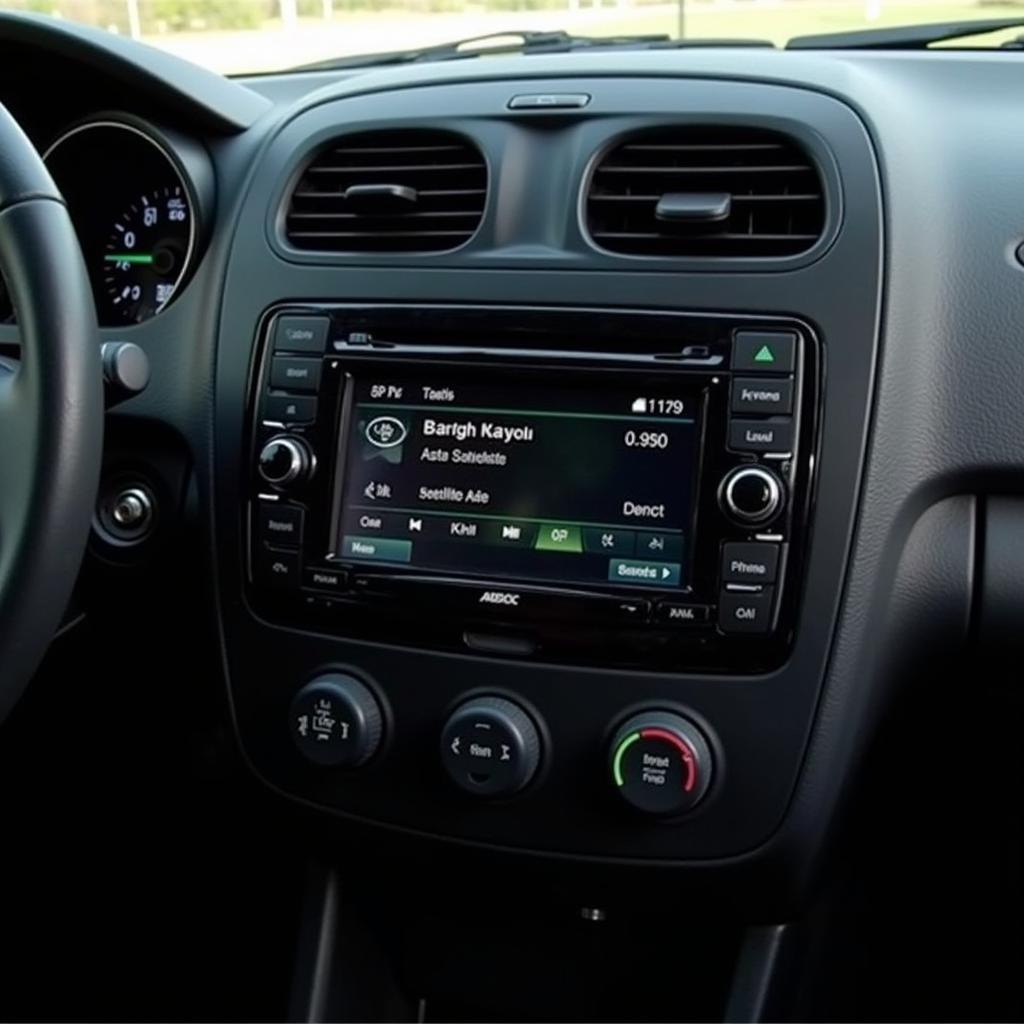The 1970 VW Beetle brake warning light can be a source of anxiety for any driver. Understanding why this light illuminates and how to address the issue is crucial for both safety and peace of mind. This article will delve into the common causes of a lit brake warning light in a 1970 VW Beetle, providing you with the knowledge to diagnose and potentially fix the problem. We’ll explore everything from simple checks to more complex solutions, empowering you to take control of your classic car’s braking system.
See our guide on the 1970 VW Beetle park brake warning light for more information related to parking brake issues.
The brake warning light in your 1970 VW Beetle is a vital safety feature, designed to alert you to potential problems within the braking system. It can illuminate for a variety of reasons, ranging from a simple oversight like the parking brake being engaged, to more serious issues such as low brake fluid or worn brake components. Ignoring this warning light can lead to dangerous driving conditions and potential brake failure. Therefore, swift action is recommended whenever the brake warning light comes on.
Common Causes of a 1970 VW Beetle Brake Warning Light
Several factors can trigger the brake warning light in your classic Beetle. Here are some of the most common culprits:
- Low Brake Fluid: This is the most frequent cause. Low brake fluid levels indicate a leak somewhere in the system, requiring immediate attention.
- Worn Brake Pads or Shoes: As your brake pads or shoes wear down, they put more pressure on the hydraulic system, potentially triggering the warning light.
- Faulty Brake Light Switch: The brake light switch is responsible for activating both the brake lights and the warning light. A malfunctioning switch can cause the warning light to stay on, even when the brakes are not engaged.
- Parking Brake Engaged: Sometimes, the simplest solution is the correct one. Make sure your parking brake is fully disengaged.
- Brake Master Cylinder Issues: The master cylinder is the heart of your braking system. Problems with the master cylinder can lead to low pressure and trigger the warning light.
- Brake Line Leaks: Leaks in the brake lines can cause a drop in brake fluid pressure and illuminate the warning light.
 1970 VW Beetle Brake Fluid Reservoir Location and Check
1970 VW Beetle Brake Fluid Reservoir Location and Check
Diagnosing the Problem: A Step-by-Step Guide
If your 1970 VW Beetle brake warning light is on, follow these steps to diagnose the problem:
- Check the Parking Brake: Ensure the parking brake is completely released.
- Inspect Brake Fluid Level: Open the hood and locate the brake fluid reservoir. Check the fluid level and add brake fluid if necessary. Use the correct type of brake fluid specified for your vehicle.
- Inspect Brake Pads and Shoes: Visually inspect the brake pads and shoes for wear. If they are thin or worn, they need to be replaced.
- Check for Leaks: Carefully inspect the brake lines, master cylinder, and wheel cylinders for any signs of leaks.
- Test the Brake Light Switch: If the other checks reveal nothing, the brake light switch may be faulty and require replacement.
When to Seek Professional Help
While some brake issues can be addressed by DIY enthusiasts, others require professional expertise. If you’re not comfortable working on your car’s braking system, it’s best to consult a qualified mechanic. This is especially important if you suspect issues with the master cylinder or brake lines, as these components are critical for safe braking.
“A properly functioning braking system is paramount for safety,” says John Smith, a seasoned automotive technician with over 20 years of experience specializing in classic VW Beetles. “Don’t hesitate to seek professional help if you’re unsure about any aspect of brake repair.”
Preventing Brake Warning Light Issues
Regular maintenance is key to preventing brake problems. Here are a few tips:
- Regular Brake Fluid Checks: Check your brake fluid level regularly, at least once a month.
- Routine Brake Inspections: Have your brakes inspected by a qualified mechanic at least once a year or as recommended in your owner’s manual.
- Timely Brake Pad/Shoe Replacement: Replace your brake pads or shoes before they become excessively worn.
For those experiencing issues with the park brake warning, check out this article: 1970 vw beetle park brake warning. It might provide some additional insight.
“Preventive maintenance is the best way to avoid costly repairs and ensure the longevity of your classic Beetle’s braking system,” adds Mr. Smith. “Regular checks and timely replacements can prevent many brake-related issues.”
Conclusion
The 1970 VW Beetle brake warning light serves as a crucial indicator of potential problems within your braking system. By understanding the common causes, following the diagnostic steps outlined above, and adhering to a regular maintenance schedule, you can address brake warning light issues effectively and ensure the safe operation of your classic car. Remember, if you are unsure about any aspect of brake repair, seeking professional help is always the best course of action. You can find more information on related brake issues with articles like brake warning light on vw beetle.
FAQ
- What is the most common cause of a lit brake warning light? Low brake fluid.
- How often should I check my brake fluid level? At least once a month.
- Can I drive my car with the brake warning light on? It’s not recommended, as it indicates a potential problem with your brakes.
- What should I do if my brake warning light comes on? Pull over safely and diagnose the problem following the steps outlined in this article.
- How often should I have my brakes inspected by a mechanic? At least once a year or as recommended in your owner’s manual.
- What are the signs of a bad brake master cylinder? A spongy brake pedal, low brake fluid, and a lit brake warning light.
- How can I prevent brake warning light issues? Regular maintenance, including brake fluid checks and timely replacement of worn components. This resource on the 05 international 4200 brake pressure warning sensor can also be helpful in understanding similar issues in other vehicles.



